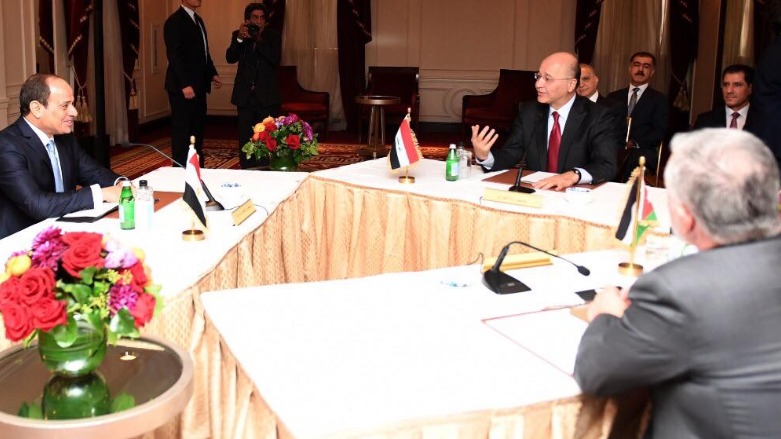Iraq, Jordan, Egypt hold tripartite summit in New York to discuss regional developments

ERBIL (Kurdistan 24) – King Abdullah II of Jordan, along with Iraqi President Barham Salih and Egyptian President Abdel Fattah al-Sisi, on Sunday held a tripartite summit in New York.
During the high-level merting, Salih emphasized the importance of "strengthening peace, diminishing the specter of war, and improving regional dialogue between neighboring states to prevent crises," according to the press office of the Iraqi Presidency.
The three leaders focused on redoubling efforts for peace in the region and noted that regional security was a shared burden. The representatives of Egypt, Jordan, and Iraq agreed to work together to improve security coordination and address the threat of terrorism.
They also stressed the need to preserve and further develop opportunities resulting from "hard-won gains against terrorism" in the region in recent years. "They agreed on the importance of aggressively confronting those who support terrorism, whether politically, financially, and through various media channels," the Iraqi presidency's media office added.
The Egyptian and Jordanian leaders reiterated their full support for Iraq's reconstruction efforts and the repatriation of internally displaced people to areas liberated from the Islamic State.
Reviewing regional developments, the three countries collectively emphasized the importance of "comprehensive political solutions to crises in the region," and noted Syria, Libya, and Yemen in their discussion. They expressed a firm desire for a rapid resolution to the respective crises, "in accordance with all applicable UN Security Council resolutions and in a manner that preserves the unity, independence, and territorial integrity" of these countries.
The meeting concluded with the signing of a symbolic agreement regarding the importance of "preserving the Arab collective's national security" by countering all external interventions aimed at "destabilizing the Arab world."
Editing by Nadia Riva
